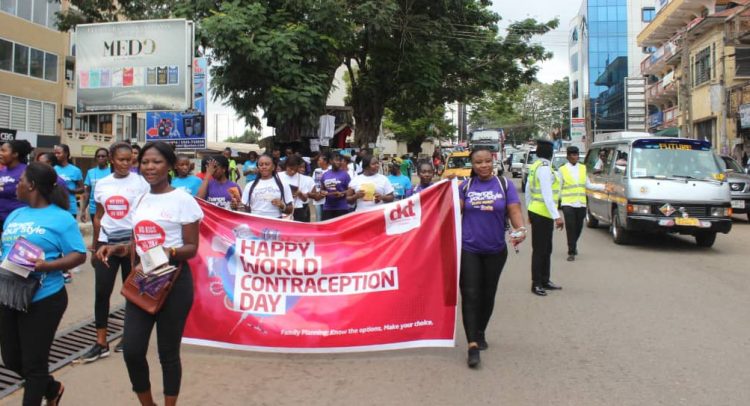Staff of DKT on the float
DKT International Ghana, a non-profit organization whose core mission is to contribute to raise modern contraceptive prevalence rates (mCPR), has held a public durbar to climax activities for the 2019 World Contraceptive Day.
DKT which is also focused on reducing maternal mortality and providing safe quality options for HIV/AIDS prevention through dynamic social marketing in Ghana embarked on an educative float from Labour roundabout through some principal street in Kumasi prior to the durbar held at the Bantama Market.
In line with the theme for this year’s celebration, ‘Family planning; know the options, make your choice’, the community members were educated on the various choice of contraceptives available in the country.
There has been a three percent increase in the use of modern contraceptive methods among married women, from 22 per cent in 2017 to 25 per cent in the 2017, according to the Ghana Health Service (GHS).
However, data shows that the unmet need for FP in the country was still high at 26.3 per cent.
This can be attributed it to poor provider attitude to the young and sexually active, inadequate male involvement, persistent rumours, missed opportunities for post-partum and post abortion family planning and inadequate infrastructure and equipment for provision of services.
Thus the float and durbar was to sensitize the community to educate the women on the contraceptive methods available in Ghana and its benefits to the society and the nation at large.
DKT started operations in Ghana in 2012, with the aim of providing safe, affordable and effective varieties of contraceptive products and services through pharmacies, chemical shops, private clinics and maternity homes.
It is a well-established social enterprise that significantly contributes to SRH in Ghana.
DKT is currently the market leader in the distribution of condoms (Fiesta Condoms and Kiss Condoms) and also the proprietary owner of the Lydia range of Contraceptives in the country.
By Jamila Akweley Okertchiri

